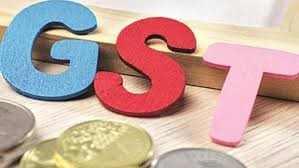Blog
Understanding GST Payments: When does a Payment Actually Count
22/09/2025

Understanding GST Payments: When Does a Payment Actually Count?
If you're accounting for GST on a payments basis, timing is everything. But what exactly constitutes a "payment" for GST purposes? It's not as straightforward as you might think. At CMK Accountants, we regularly help clients navigate the complexities of GST payment timing, and we've seen how misunderstanding these rules can lead to costly mistakes.Let's break down everything you need to know about when a payment is considered "made" for GST purposes.
The Payments Basis: A Quick Refresher
First, let's clarify what we mean by payments basis. If you're GST-registered and have elected to account for GST on a payments basis, you can only claim GST input tax credits when you've actually paid for goods or services. Similarly, you only need to pay output tax when you've received payment from your customers.This system can be a cash flow advantage for many businesses, but it requires careful attention to when payments are actually considered "made."
What Counts as Payment?
Inland Revenue recognises that payment doesn't always involve cash changing hands. In fact, they've identified nine different ways a payment might be considered to have been made. Let's explore the main categories:
Practical Example: Sarah's consulting business accepts a 60-day promissory note from a client for $11,500 (including GST). Even though she won't receive cash for 60 days, she may need to account for the $1,500 GST output tax in her next GST return.
Practical Example: Mike's carpentry business builds kitchen cabinets worth $5,750 (including GST) in exchange for accounting services worth the same amount. Both businesses need to account for GST as if they'd received $5,750 cash and paid $5,750 cash.
Practical Example: Emma uses her business overdraft to pay a $2,300 (including GST) invoice from her supplier. Even though she's using borrowed money, this counts as payment made, and she can claim the GST input credit.
Practical Example: John owes Lisa's business $3,450, and Lisa owes John's business $2,300. They agree to set off the amounts, leaving John owing $1,150. The set-off of $2,300 counts as payment made by both parties for GST purposes.
The Nine Ways Payment Can Be Made
Inland Revenue's comprehensive list in PUB00520 includes these nine methods:
Each method has specific rules and timing considerations that can affect your GST obligations.
Deferred Payment Arrangements: The Critical Details
One of the most complex areas involves deferred payment arrangements. PUB00520 includes a helpful table on page 18 that summarises when GST can be claimed under various scenarios, including:
The key principle is that for payments basis taxpayers, you generally can't claim GST input credits until you've actually made payment, regardless of when you received the goods or services.
Accounting Entries and Anti-Avoidance
Inland Revenue is also mindful of artificial arrangements designed to manipulate GST timing. Simply making accounting entries without genuine economic substance won't create a "payment" for GST purposes. The anti-avoidance provisions can apply to arrangements that lack commercial substance or are primarily motivated by GST advantages.
Common Pitfalls to Avoid
Timing Mistakes: Don't claim GST input credits just because you've received an invoice. On a payments basis, you must wait until payment is actually made.Credit Card Confusion: When you pay with a credit card, payment is considered made when you use the card, not when you pay your credit card bill.Deposit Dilemmas: Partial payments can trigger partial GST obligations. If you pay a 20% deposit, you can generally claim 20% of the available GST input credit.
Key Takeaways for Your Business
Conclusion
Understanding what constitutes payment for GST purposes is crucial for businesses operating on a payments basis. While the rules can be complex, getting them right protects your business from penalties and ensures optimal cash flow management.At CMK Accountants, we help businesses navigate these complexities every day. If you're unsure about any aspect of GST payment timing, or if you're considering changing to a payments basis, we're here to help.Remember, when it comes to GST, timing isn't just important – it's everything.

